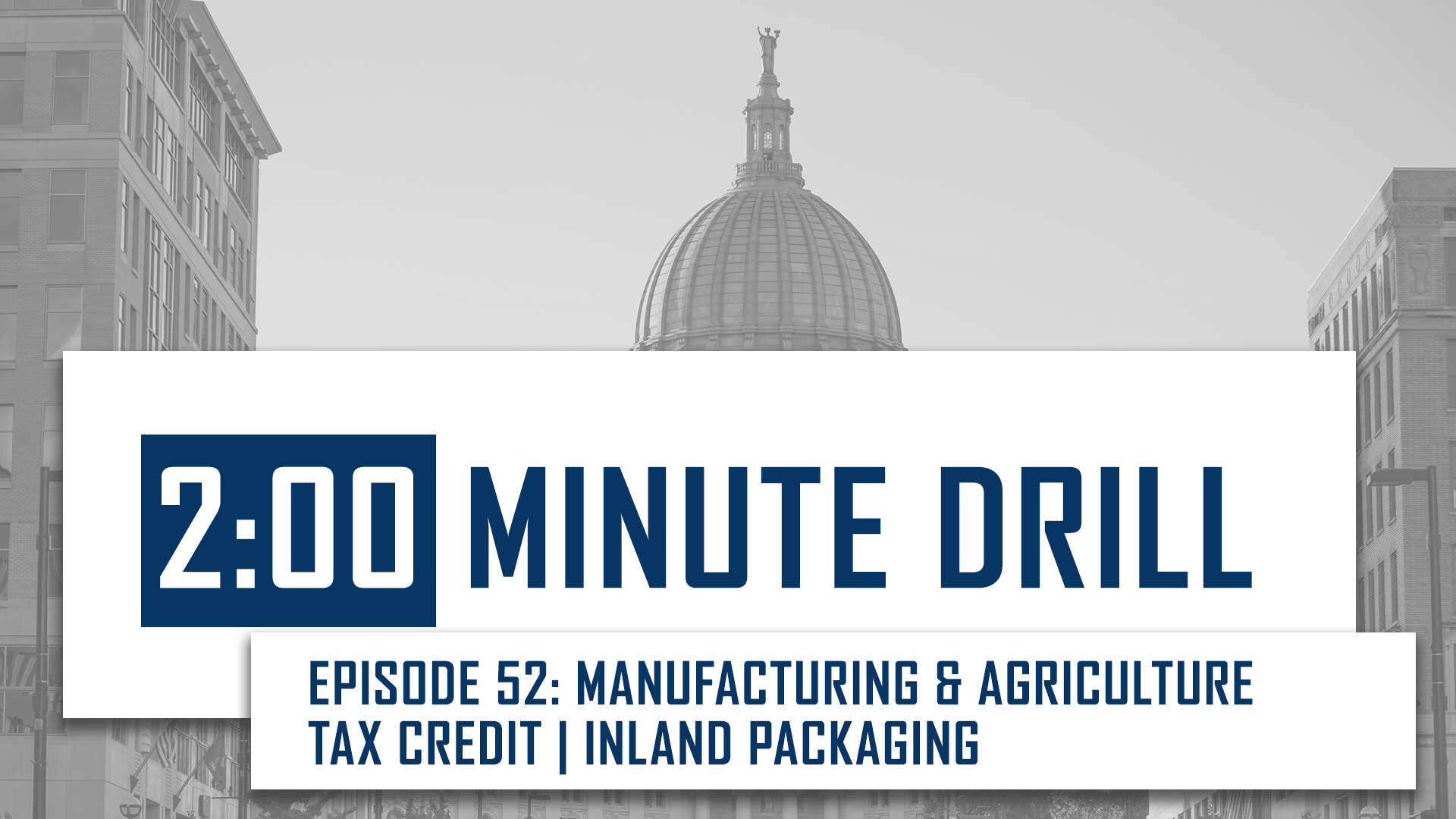MADISON – WMC President/CEO Kurt Bauer released the following statement regarding Senate Bill 542 (SB 542), the Schultz/Jauch mining legislation:
In the aftermath of the vote last week to reject the common sense mining reforms in Assembly Bill 426, certain lawmakers have attempted to disguise their job-killing vote by pointing to the Schultz/Jauch mining bill (Senate Bill 542) as an alternative. However, the Schultz/Jauch mining bill is an unserious reform proposal that would not result in mining investment in Wisconsin.
Legislators who are serious about mining reform and creating mining jobs had the opportunity to show their support by voting for the compromise version of Assembly Bill 426. Unfortunately, 17 senators demonstrated their lack of commitment on the Senate floor last week.
Gogebic Taconite issued a statement prior to the vote last Tuesday making clear that passage of the Schultz/Jauch mining bill would actually discourage mining investment, and add to the uncertainty in the mining permit process.
WMC agrees with the mining company’s analysis, and believes that passage of SB 542 would make our tax and regulatory structure for iron mining worse than current law. We also agree that passage of the Schultz/Jauch legislation would not result in the creation of badly-needed mining jobs in Northern Wisconsin.
Following is a list of specific issues that highlight the inadequacy of the Schultz/Jauch mining bill to help explain why passage of that bill will not result in Wisconsin mining jobs:
- Fails to fix what is broken with current law. The bill contains 6 pages of cosmetic changes to Wisconsin’s current mining law, many of which actually make current law worse. Wisconsin is consistently ranked as one of the worst regulatory climates in the world for attracting mining investment, and the Schultz/Jauch bill does nothing to improve our standing. It maintains the current barriers to investment, including permitting uncertainty, timing uncertainty and legal uncertainty.
- $25 million upfront mining tax. The bill imposes a new front-loaded $25 million tax for the privilege of operating an iron mine in Wisconsin for the first five years. No other industry in this state faces this type of punitive tax burden. This surtax will make it harder to operate a profitable mine in the beginning stages of mining, and will therefore make it harder to justify investing in our state.
- Interminable, open-ended permit timeline. The bill contemplates a 540 day permitting process, plus an unlimited number of open-ended extensions…with no meaningful penalty for DNR’s failure to meet the deadline. This allows the permit process to drag on indefinitely, with no clear time frame for a decision. It is impossible for an applicant to attract investors when no one knows when or if a permitting decision will be made.
- Iron mining moratorium. The bill allows the DNR to decide whether the current mining moratorium applies to an iron mining project. This creates huge uncertainty with regard to whether an iron mine will be regulated differently than other types of mines. An applicant cannot be sure which law will apply to their project – adding to the uncertainty that prevents capital investment.
- Mandatory Litigation. The bill includes the same mandatory lawsuit built into the process before a decision is made on the permit – and ensures that DOA, not DNR, will make the final decision on the permit. This costly and time-consuming trial maintains the same uncertainty that has prevented any significant investment in mining in Wisconsin. It is unclear how turning an environmental permitting process into a litigation process will lead to the creation of mining jobs.
- Putting the Feds in charge. The bill also provides mandatory and open-ended off ramps from the 540 day timeline if the Army Corps of Engineers asks for more time. The Corps would decide how long the delays will last – they get as much time as they want. Wisconsin should not allow federal agencies to dictate the length of our permitting processes.
- Adding more bureaucracy. The bill adds more bureaucracy to mining permitting by inserting a DOA administrative law judge into the process at the first public hearing. It is difficult to understand how adding another agency to the process and more opportunities for legal arguing will streamline permitting.
- Creating new red tape. The bill creates a stringent new standard for high capacity well permits that applies only to iron mining. No other industry or mining activity would need to meet this new standard. This type of punitive and unfair regulation will only worsen Wisconsin’s reputation for being hostile to mining.
The Schultz/Jauch mining legislation will maintain Wisconsin’s status as an anti-mining state, and will not lead to the creation of mining jobs or mining investment.
For Further Information Contact:
Scott Manley, (608) 258-3400
3-5-12_GTAC_Statement





